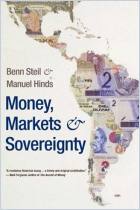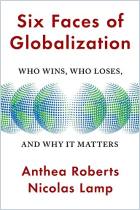Join getAbstract to access the summary!

Join getAbstract to access the summary!
Jamie Merchant
Endgame
Economic Nationalism and Global Decline
Reaktion, 2024
What's inside?
The global order is broken — and no credible fix is in sight.
Recommendation
When it comes to globalization, the bloom is very much off the rose, commentator Jamie Merchant reports. After the peaceful and prosperous 1990s, the Great Recession marked an end to optimistic hopes that the world had moved beyond petty skirmishes and political bickering. Many authors have noted this reality, of course, and they often follow up the diagnosis with a prescription that involves little more than partisan talking points. But Merchant offers something different — a scathing takedown of the hypocrisy and double-talk coming from all sides of the political spectrum.
Summary
About the Author
Jamie Merchant is an economics and political commentator based in Chicago. His writing has appeared in the Brooklyn Rail, The Baffler, The Nation, and In These Times.




















Comment on this summary